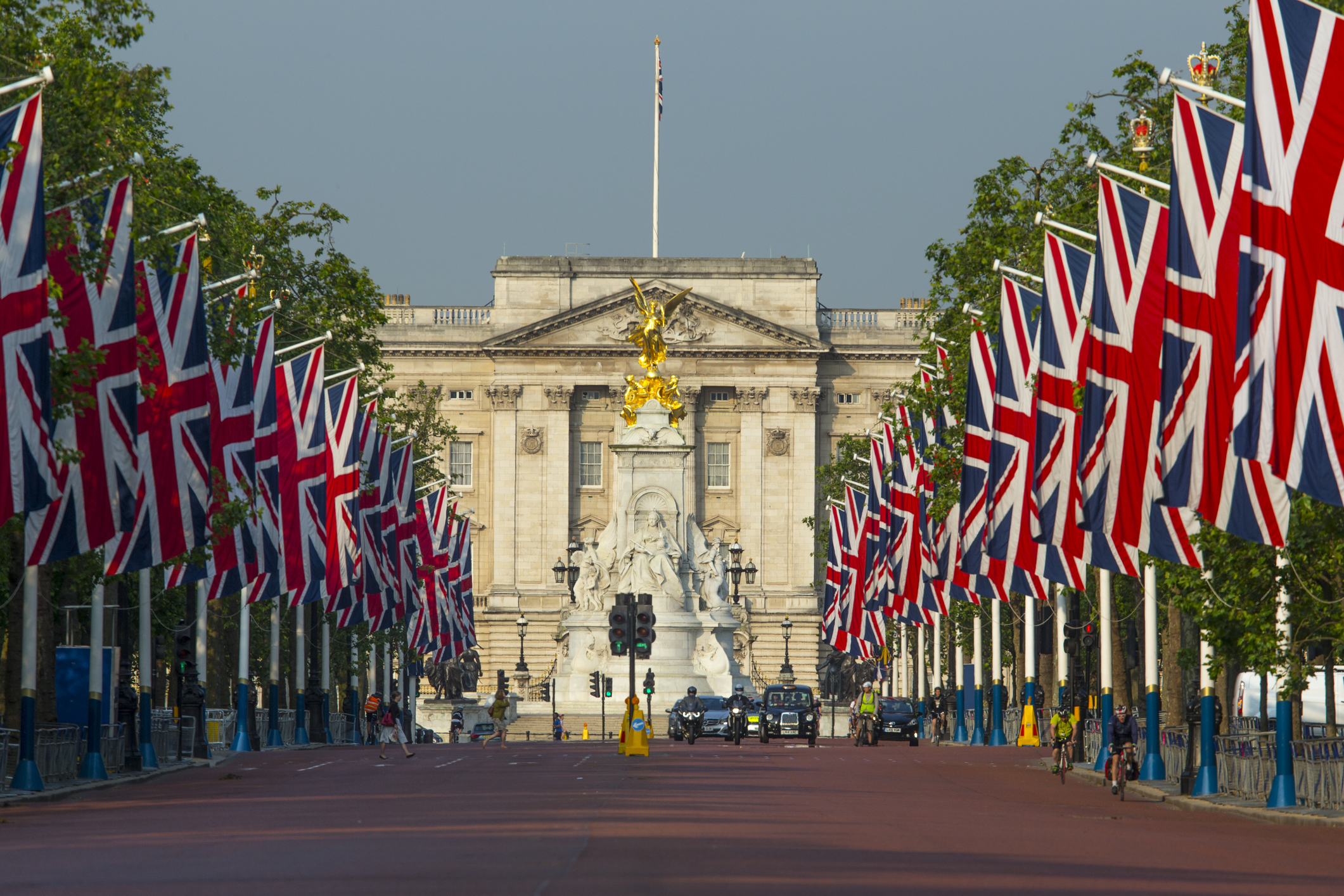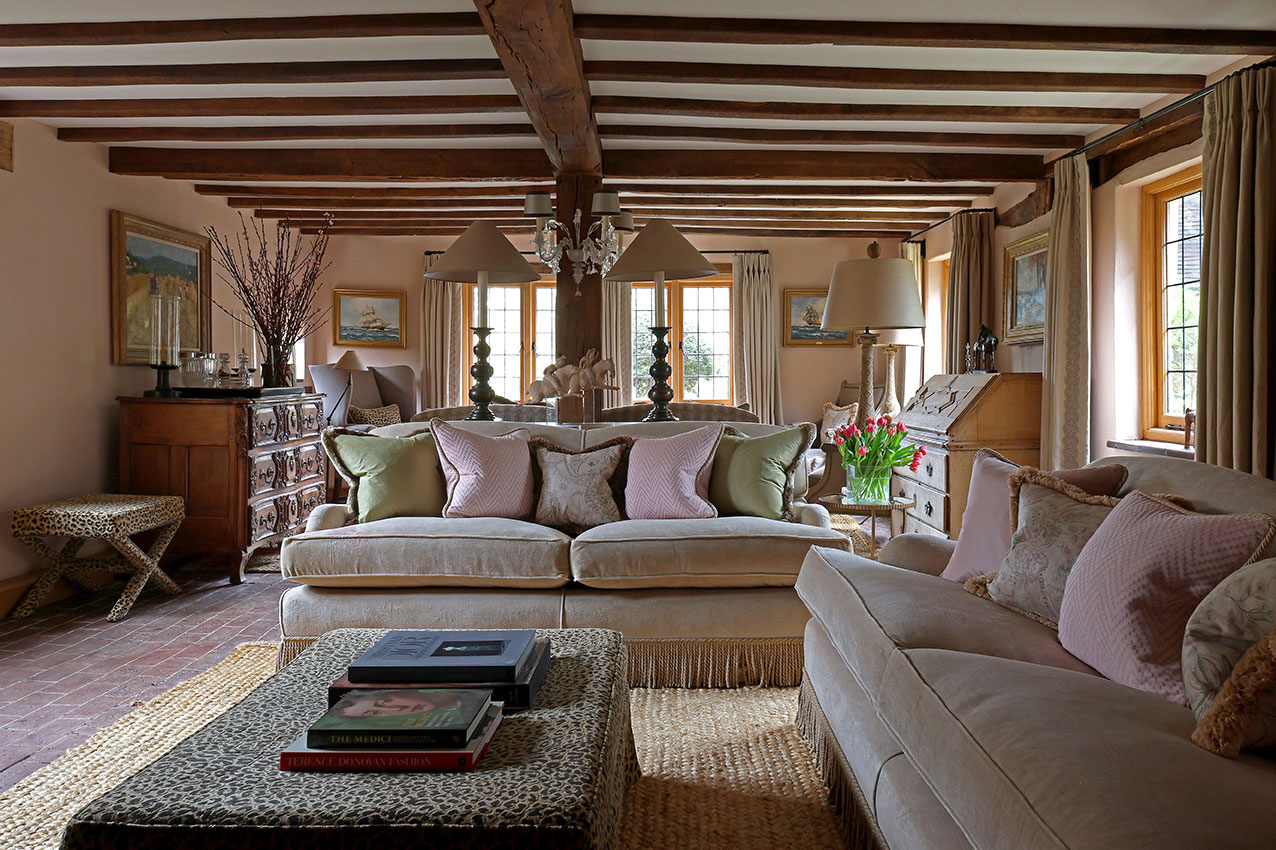'Intelligent, calm, cautious and thoughtful': Why donkeys keep charming us
With the ability to offer silent, unwavering emotional support, donkeys are stoic and devoted creatures that can boost mental health and melt the hardest of hearts.
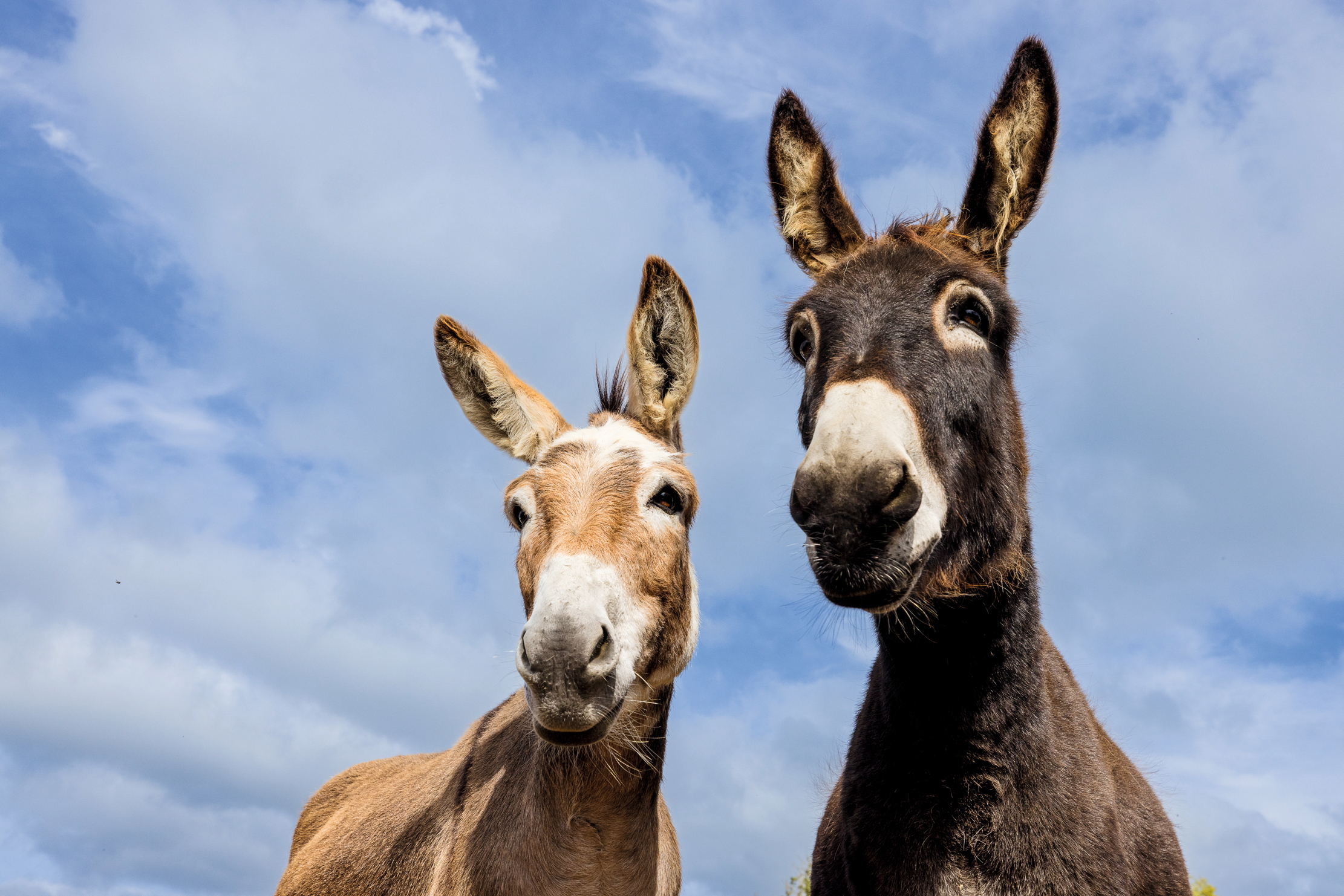

As soon as I could walk, I was involved in the care of our donkeys,’ reveals Esme Higgs. ‘My earliest memories are out in the field, looking up and stroking the softest of noses, feeling their breath on my face and watching their large ears move independently, finely tuned to the quietest sounds around them.’
With 970,000 subscribers on YouTube and more than two million social-media followers, equestrienne Ms Higgs has amassed a legion of fans with cheerful and informative videos about her countryside lifestyle, but she’s not alone in the spotlight — her loveable donkeys and horses have built up large fanbases of their very own. When she announced the news earlier this year that two of her donkeys, Willow and Bruno, had died within months of each other, she received an outpouring of sympathy and support from her global audience — safe to say, her remarkable bond with these gentle, devoted creatures has captured hearts all over the world.
‘Donkeys, like all equines, are prey animals with a keen awareness of their surroundings and the emotions of their companions, including humans,’ explains Ms Higgs, an ambassador for horse and donkey welfare charity Brooke. ‘If you approach a donkey feeling flustered or irritable, they might shy away; if you exude calmness, you earn a loyal friend. Their empathetic nature means that when you are sad, a donkey will often rest its heavy head on your shoulder, offering silent support.’
Farmer and BBC’s Countryfile presenter Adam Henson concurs that their companionship is rewarding. ‘Donkeys can really boost mental health,’ he enthuses. ‘They stand there and let you stroke them — they have that nice, silky soft bit on the end of their nose. They are lovely creatures and will always come up to say hello.’
Donkeys are in no short supply at Mr Henson’s Cotswold Farm Park at Guiting Power, Gloucestershire — he currently has a jack (the term for a male donkey), two young jennies (female) and three in-foal jennies — and if you’re ever on the hunt for something to make you smile after a long day, look no further than his YouTube Farm Diaries episode about donkeys. The footage of Mr Henson laughing as Sugar, a donkey foal, gallops joyfully in circles around him and her mother is sure to warm even the hardest of hearts.
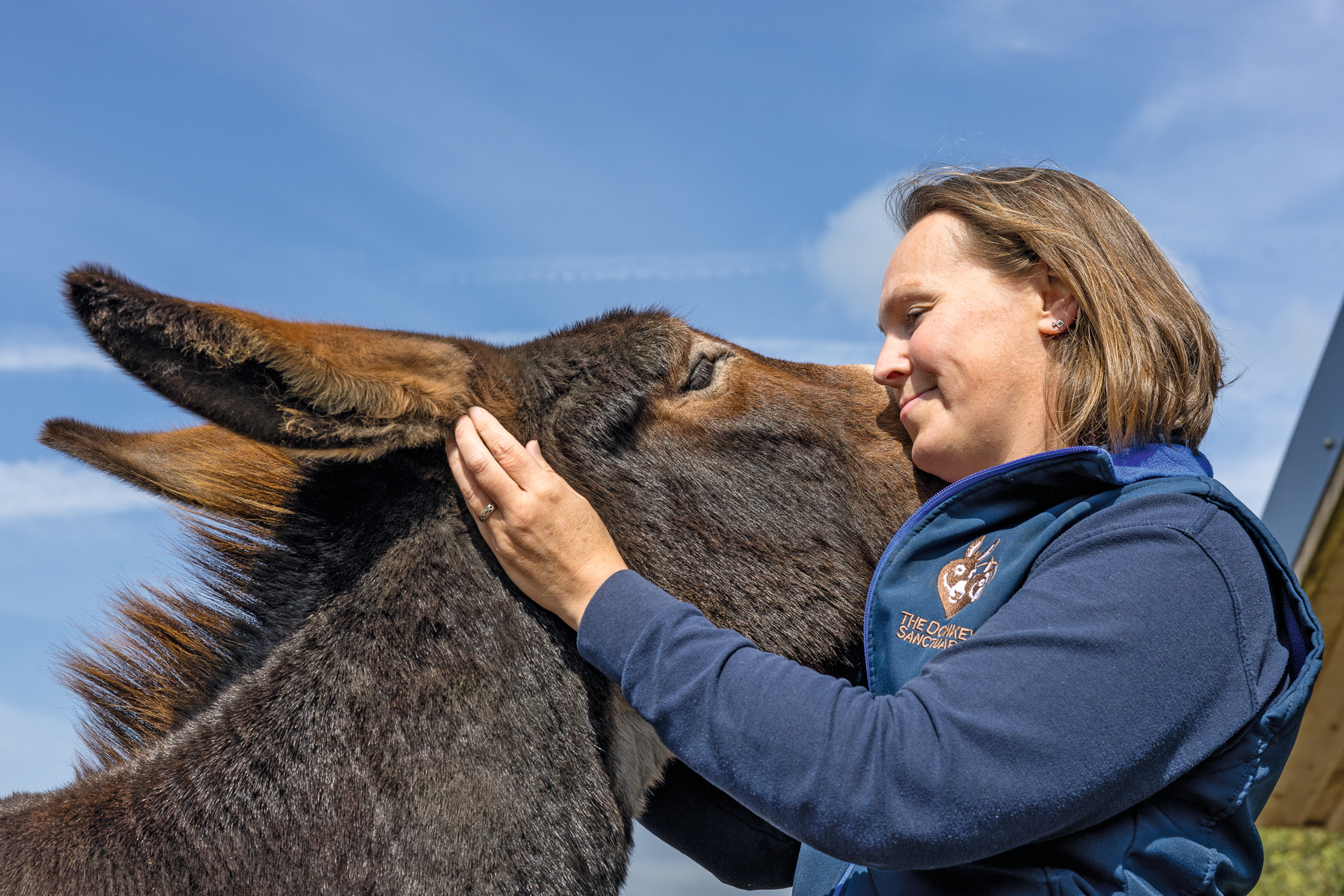
‘We’ve had donkeys on the farm for as long as I can remember,’ he says. ‘I always enjoy spending time with them and their foals are gorgeous. Visitors love to watch our donkeys and it’s wonderful for them to see the foals, especially in our barns during the Enchanted Light Trail at Christmas time.’
Although a farm favourite, donkeys have long been misunderstood, often considered grumpy, stubborn or stupid — but this is a deeply unfair reputation that has arisen from the misinterpretation of their stoic, mindful nature. ‘This whole idea around donkeys being stubborn and slow comes from their evolution, which plays an important role in understanding them,’ explains Faith Burden, deputy chief executive of The Donkey Sanctuary.
Sign up for the Country Life Newsletter
Exquisite houses, the beauty of Nature, and how to get the most from your life, straight to your inbox.
‘Descended from African wild asses, donkeys evolved to survive in some of the toughest places on earth — mountainous environments with sparse vegetation and widely distributed water sources. That means their behaviour is different to a horse — if horses are startled, they run because they evolved on wide-open, grassy plains. For donkeys on steep, rocky, narrow terrain, however, fleeing wasn’t a good defence — they have a propensity to freeze and engage a “fight” response when threatened. They won’t run away blindly; they’re intelligent, calm, cautious and thoughtful.’
This steady nature, combined with a long life expectancy — many live into their thirties — has shaped the donkey’s role as a domesticated working species. ‘I always like to say there are many civilisations that were built on the back of a donkey,’ reflects Dr Burden. ‘The relationship between humans and donkeys has been hugely beneficial to people and they still play a critical role in some of the world’s most vulnerable communities, indispensable to livelihoods. They have this quiet tenacity and humility — it was a donkey that carried Mary to Bethlehem and Jesus into Jerusalem on Palm Sunday. It’s a real donkey trait to simply carry on.’
Such fortitude and dependability, together with a natural curiosity and playfulness, makes them excellent trusted companions, she emphasises: ‘Donkeys bring a sense of calm and purpose to your life and bond closely with their human caregivers. Their behaviours are subtle, but once you get to know them, it really is a privilege.’
This sentiment is shared by Jo Meehan, who first fell for the donkey’s charm 15 years ago. ‘There were donkeys kept in the field opposite and as we drove home up the lane, they would come over to see us — they had a way of making us feel warm and happy,’ she recalls. ‘When we decided to live somewhere more rural, the idea of owning donkeys became part of our house search.’
Moving to Wales, Prof Meehan and her husband, Vinny, signed up to the donkey guardianship scheme run by The Donkey Sanctuary, embarking on a thorough two-year process before rehoming three donkeys: Ferguson, Edric and Spud. ‘Ferguson is the gentle giant and by far the most confident — before he came to us, he spent time in donkey-assisted therapy sessions to help those struggling with anxiety. Edric is the oldest, but the smallest and it takes time to earn his trust. He’s the wise old man and the leader of the pack — if he goes somewhere, they all follow. Then we come to Spud, the naughty one. He’s so funny and playful, he loves to play with hula hoops and wellies — if something goes missing, we know who’s taken it,’ she laughs.
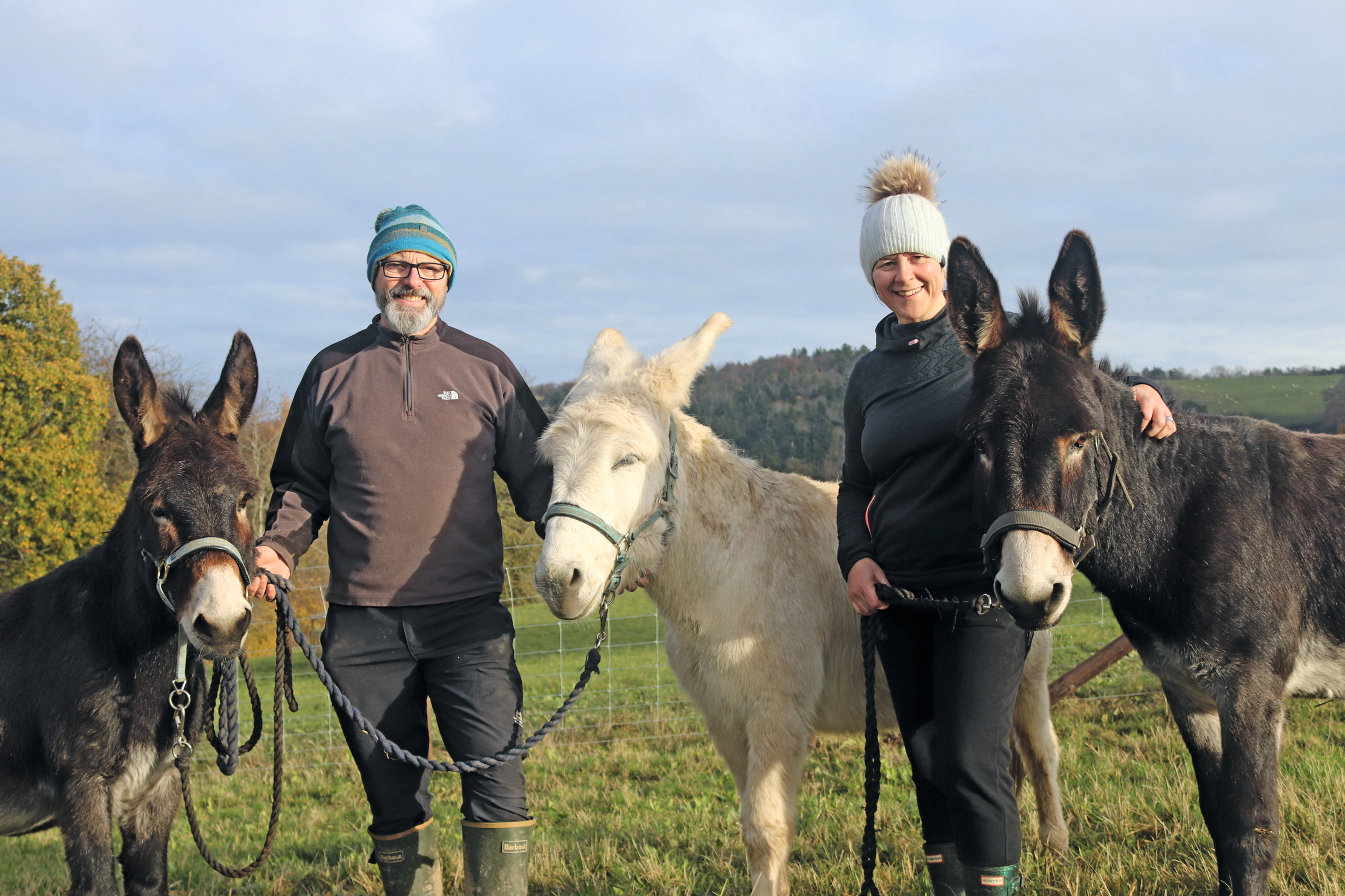
A professor at the University of Liverpool Management School, Prof Meehan specialises in sustainability and made the decision to rewild the land on their smallholding with the donkeys’ needs in mind. ‘There are about 15 different types of native grasses, wildflowers and wild herbs and we’ve worked with the Woodland Trust to reinstate the hedgerows and plant a new woodland,’ she says. ‘It’s great for the donkeys’ health and mental enrichment — all the smells and the shade of the trees — but it’s wonderful for us, too. We look out at those various shades of green and all the colours of the rainbow in the flowers.’
There’s nothing quite like the greeting each morning of a donkey’s happy brays on seeing you, Prof Meehan concludes. Their extraordinary ability to read the energy of those around them continues to amaze her: ‘They’re beautiful, wise, sentient creatures — if you’re feeling stressed or anxious, they seek you out and stand by you. They take time to observe your behaviours before making a decision. We can learn a lot from donkeys — they judge a person on their actions.’
The joy inspired by the presence of donkeys has long been valued by the residents of Clovelly in north Devon, a picturesque fishing village perched on a 400ft cliff with no vehicular access, where, for centuries, these animals have been integral to the way of life. Once used to carry goods up the steep, narrow, cobbled streets — before they were replaced by wooden sleds — the famous Clovelly donkeys are synonymous with the charm of the village and have become a huge draw for tourists.
‘We currently have four young male donkeys, each with their own character. People adore them,’ enthuses John Rous, custodian of the Clovelly estate. ‘We’re enormously proud of them. When a bride from the village gets married, the donkeys accompany her up the street and they appear in church on Palm Sunday. So far, they’ve always behaved marvellously during the service — we do hold our breath each year, however.’
Although their role may have evolved, Mr Rous insists the donkeys are as important to Clovelly as they’ve always been. ‘Nowadays, they’re largely on photographic duty, truth be told,’ he laughs. ‘They parade around the village, much admired and enjoying a very relaxed, Bertie Wooster-type of life.’
Katy Birchall is an author and journalist
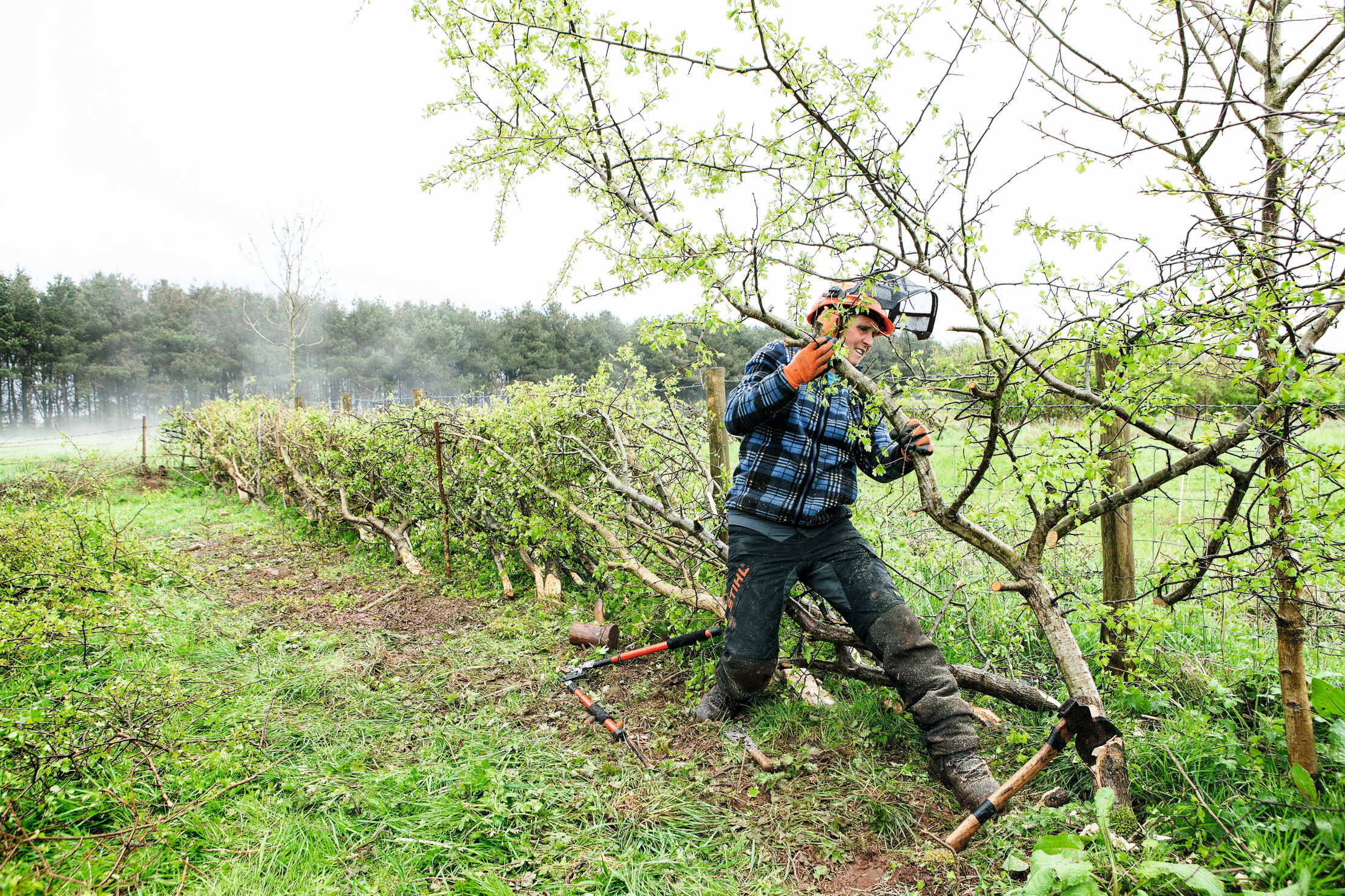
Living on the hedge: The art of hedgelaying
The modern hedgelayer’s role is no longer that of a fencer, but instead a practical conservationist creating vibrant, thorny arteries
